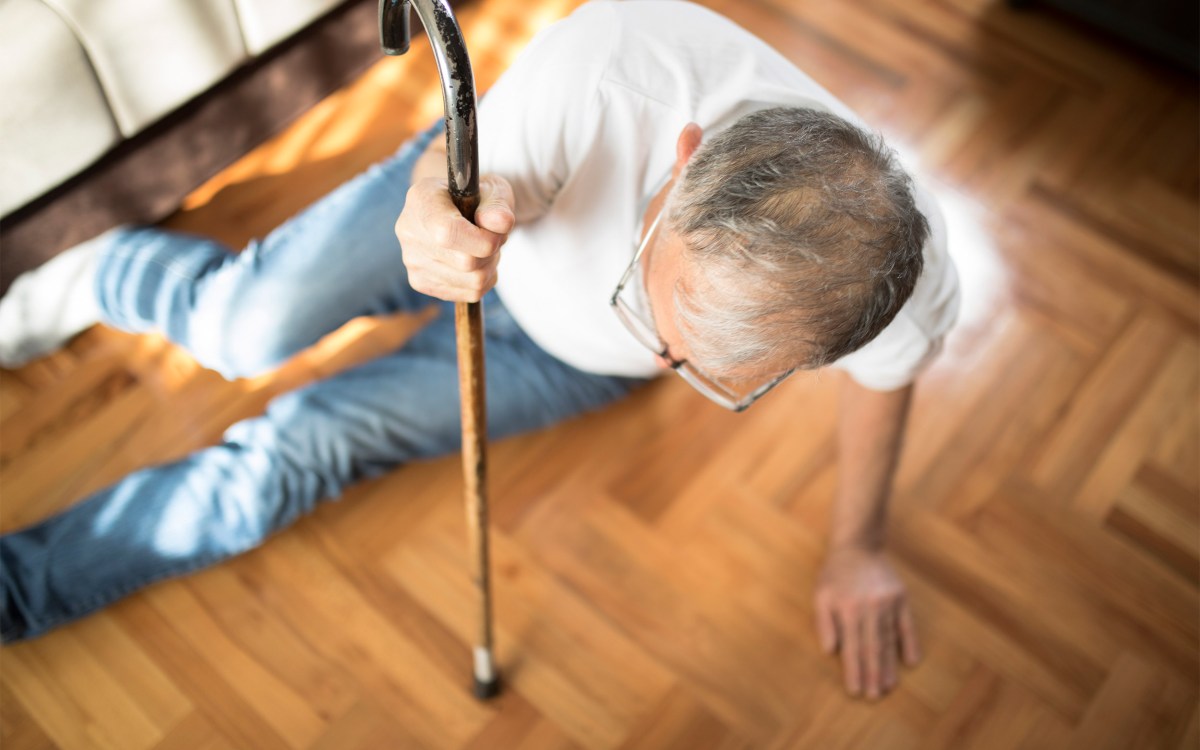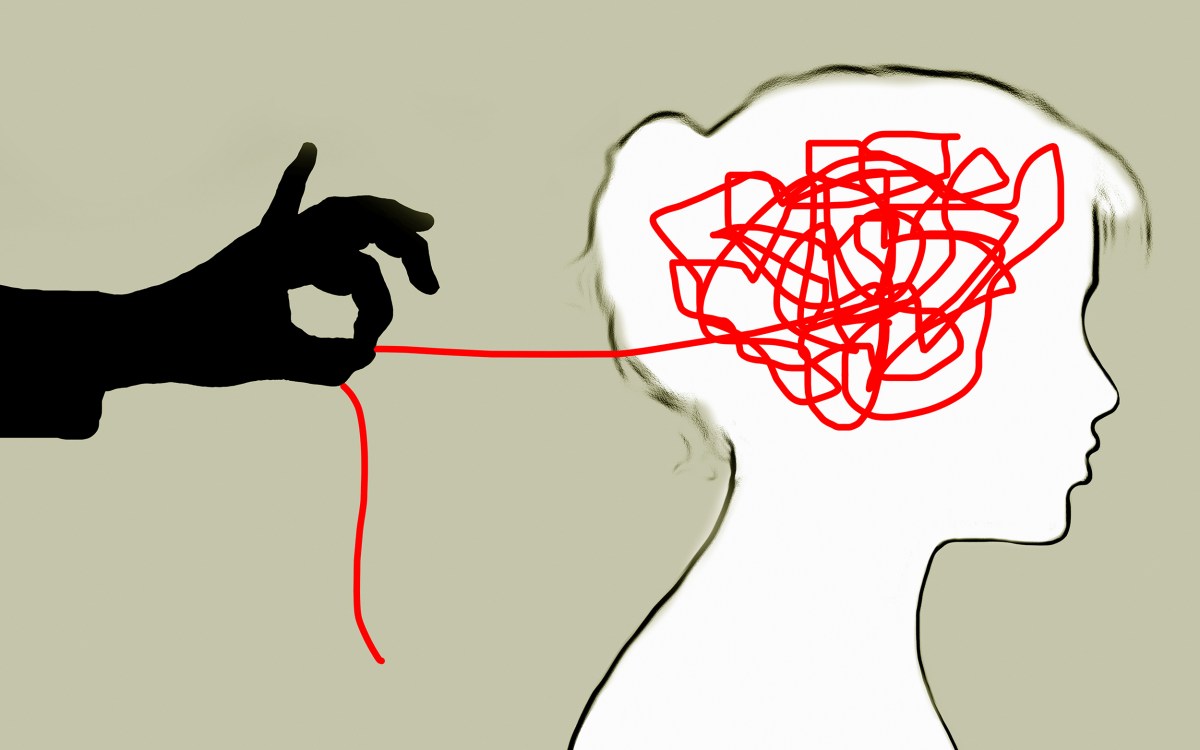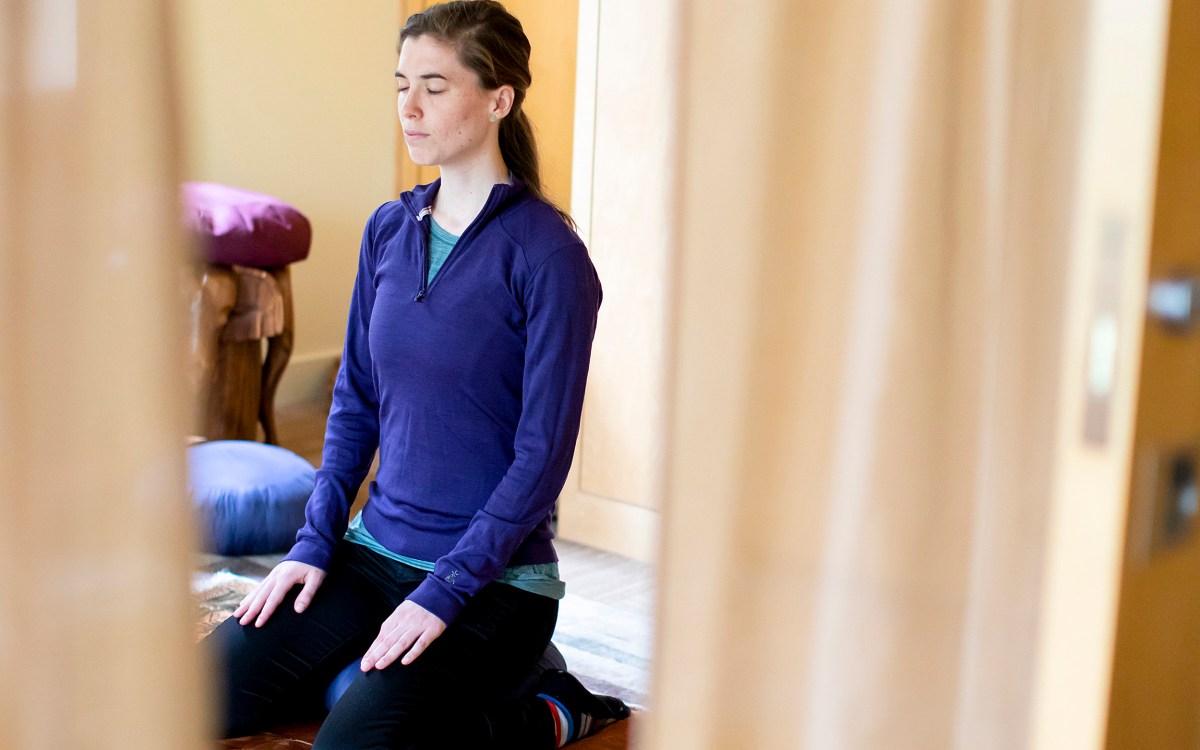Ways to redirect our response to COVID-19 anxieties
Third in series of Chan School forums offers tips for coping with the pandemic

Motoki Tonn/Unsplash
This is part of our Coronavirus Update series in which Harvard specialists in epidemiology, infectious disease, economics, politics, and other disciplines offer insights into what the latest developments in the COVID-19 outbreak may bring.
Even as stress and anxiety build in the face of the current health crisis, so too do resources for coping. That was the lesson Wednesday in the third in a series of weekly Harvard T.H. Chan School of Public Health online forums addressing the emotional and psychological effects of the COVID-19 crisis. Speaking from their home offices, Massachusetts General Hospital clinical psychologist and Chan School research associate Archana Basu was joined by Amantia Ametaj, a Chan School research fellow in epidemiology, and MGH clinical psychologist and Chan School research associate Kristina Korte to discuss “Managing Stress: Grounding Strategies for Dealing with the COVID-19 Pandemic.” The forum was presented and recorded for later viewing on the cloud-based Zoom meeting app.
Much of the forum continued the theme of last week’s event, focusing on recognizing stress and anxiety and offering simple and practical ways to deal with it. For those for whom such at-home interventions are not sufficient, however, the panelists had welcome news: In Massachusetts, all insurance plans are now reimbursing for telemedicine mental-health appointments, as well as in-person clinical visits. While demand has gone up, so has access to professionals and support, said Basu. Health care providers and “Ask a Nurse” helplines are a useful first step for those seeking additional mental health suggestions or referrals.
“Within my own practice, I’m having sessions through the computer or doing phone sessions,” said Korte. Often, she added, regular clients simply need “phone check-ins.”
Picking up from last week’s forum, this week’s presenters, who share research and clinical backgrounds in anxiety disorders, trauma exposure, and PTSD, emphasized that anxiety and related issues are common — and can be productive.
More like this
“It’s normal to feel stressed,” said Ametaj. “Stress and anxiety help us identify and respond to threats in the environment and to plan for the future. But at high levels, chronic stress and anxiety can be problematic.”
Recognizing how stress may play out physically, emotionally, cognitively, and behaviorally can help us understand and manage it. Among the symptoms, Ametaj listed physical aches and pains, the inability to concentrate, sleeplessness, and isolating or reckless behavior. In terms of somatic symptoms, Korte noted that a racing heartbeat, sweating, muscle tension, and even shaking or trembling may result. (Resources, including the slides used during the forum and a recording of the forum, are available online.)
While we cannot always control our initial responses to stress, we can find ways to redirect them. Ametaj offered her own experience. On hearing that the administration was considering rolling back public health measures very soon, she experienced shortness of breath and a “feeling in the pit of my stomach.” Despite her training as a mental health professional, her initial response was most unhelpful: She started to listen to more news reports, creating more fear and muscle tension. “It led to this tornado of emotions,” she said.
At this point, she decided to take charge and “untangle the ball of yarn” of her emotions. Taking a step back, she tried to focus on how the times are difficult time everyone, and not simply a personal issue. This, she said, led her to feel sadness and heaviness, both of which were more manageable then her initial anxiety. As a next step, she turned off the news and instead let herself “sit with” her emotions, rather than trying to avoid them. As she did this, she was able to make a decision: in this difficult time, she would do her part. By identifying how her initial reaction to anxiety was actually amplifying it, Ametaj was able to find a way to manage some of it.
The panelists then offered several practical suggestions for those who need help reducing stress. Some of these, such as maintaining regular routines and self-care and deep-breathing exercises, came from last week’s forum.
Korte also led forum participants through an exercise in releasing tension from the body. Participants mindfully isolated different muscle groups — the hands and lower arms, for example — tensing them, fully experiencing their tightness, then releasing them and breathing deeply. Working through the body, from the feet up through the back and shoulders and, finally, the face, provided a restorative break.
The series will continue Wednesday at 11 a.m. with Christy Denckla, a research associate in epidemiology at the Chan School, and Katherine Shear of Columbia University, with a focus on coping with grief and loss. The forums are open to the public and can be accessed via the School’s website.








